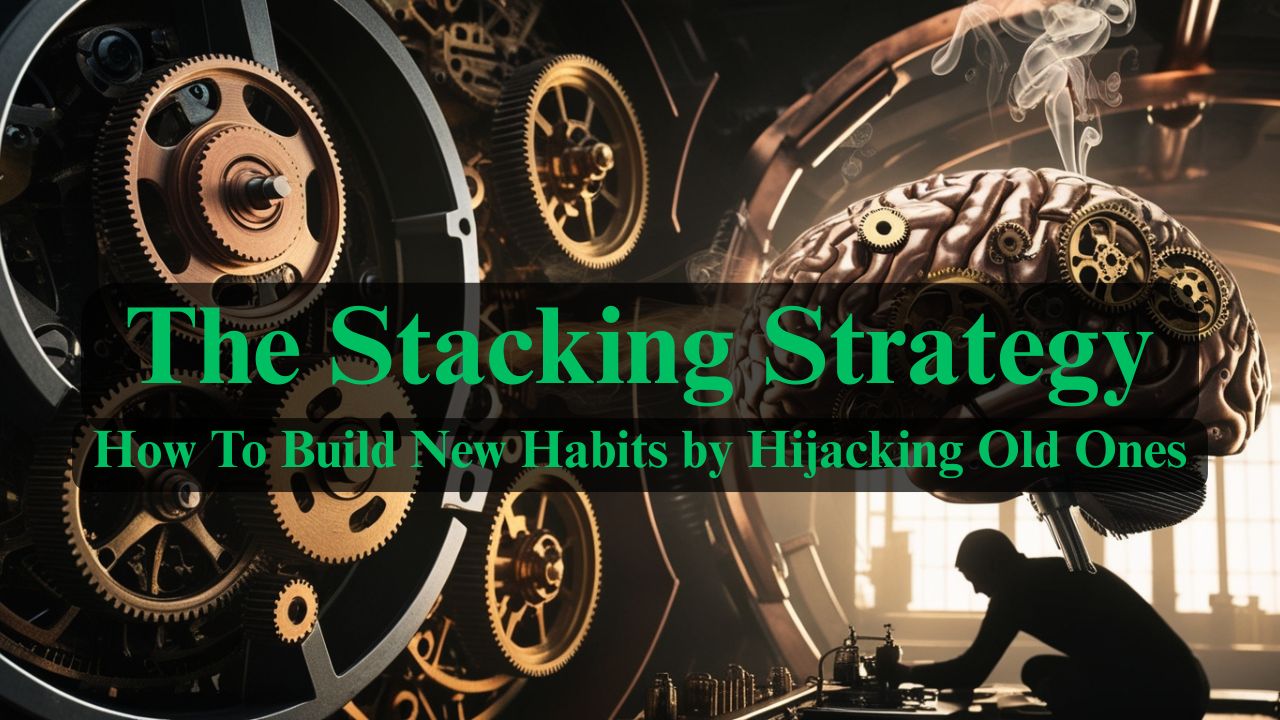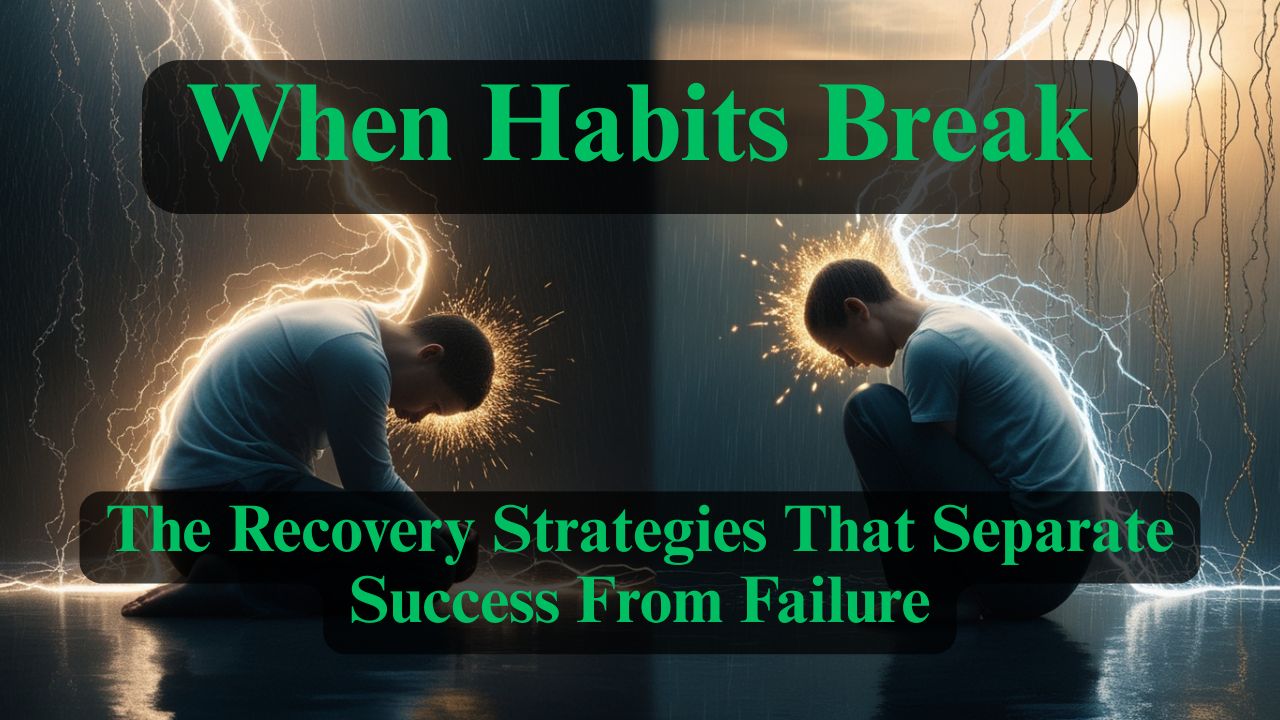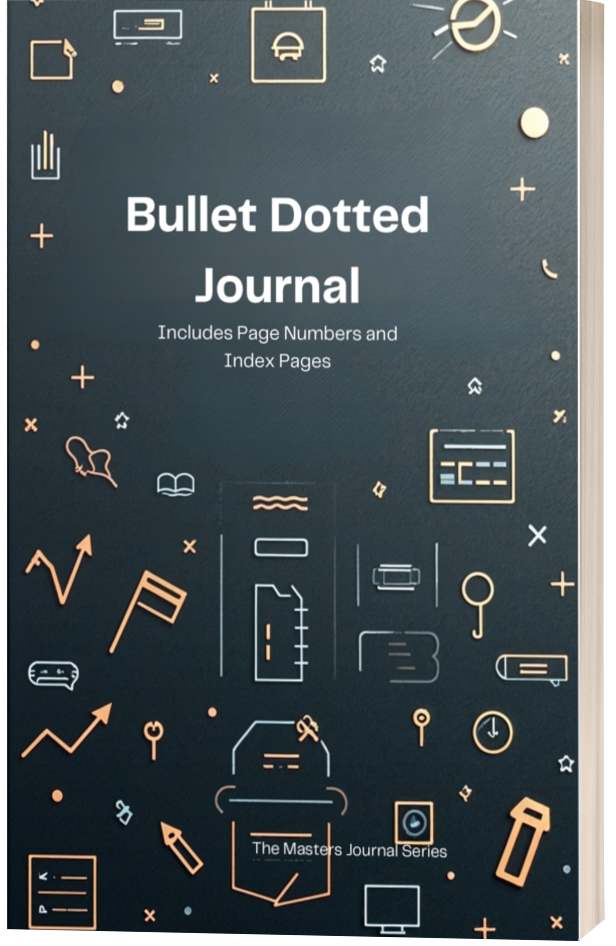From Impulse to Action: How to Strengthen Your Self-Control Muscles
In a world full of distractions and temptations, maintaining self-control is a key component of personal success. Whether you’re trying to stick to a healthy diet, complete a work project, or simply avoid procrastination, mastering your impulses and transforming them into focused action can have a profound impact on your life. But how do you shift from acting on impulse to acting with intention? Like any skill, self-control can be strengthened and cultivated over time with practice. Let’s explore how you can build and reinforce your self-control muscles to achieve your long-term goals.
Understanding Self-Control: What Does It Really Mean?
Self-control is the ability to regulate your thoughts, emotions, and behaviors in the face of temptations or impulses. It's about making choices that align with your long-term goals rather than being swayed by immediate desires or distractions. Think of self-control like a muscle. The more you use it, the stronger it gets. When you develop strong self-control, you are more likely to achieve success, maintain healthy habits, and make decisions that benefit your future.
On the other hand, lack of self-control can lead to habits that undermine your efforts, whether it's eating junk food when you want to get healthier, procrastinating when you should be working, or engaging in behaviors that don’t align with your values. The good news is that self-control can be trained, and you can go from being impulsive to being deliberate in your actions.
Step 1: Understand Your Impulses
The first step to strengthening your self-control muscles is to understand your impulses. Impulses are often quick, emotional reactions to something in the environment—like a craving for chocolate or the desire to check social media when you should be focusing on a task.
Ask yourself these questions:
• When do I give in to impulsive behaviors?
• What triggers these impulses?
• How do I feel immediately after giving in to these impulses?
Recognizing the triggers that prompt your impulses can help you understand your behavior and start to work on redirecting it. This step is crucial because without understanding where your impulses come from, it’s difficult to make intentional decisions that align with your goals.
Step 2: Practice Mindfulness and Delay Gratification
One of the most effective strategies to develop self-control is practicing mindfulness. Mindfulness helps you become more aware of your emotions and thoughts in the moment. This awareness allows you to pause before reacting to an impulse and make a conscious decision about how to respond.
One powerful way to practice mindfulness is through delayed gratification. Instead of immediately giving in to a desire (like checking your phone or eating a piece of cake), try delaying the action for a set period of time—say, 10 minutes. This gives you a moment to think about your long-term goals and evaluate whether acting on impulse aligns with those goals.
For example, if you’re trying to stick to a diet and crave a sugary snack, instead of instantly reaching for it, take a few deep breaths, drink some water, or go for a walk. Often, by the time the 10 minutes are up, the impulse will have passed, and you’ll feel more empowered to stick to your decision.
Step 3: Break Down Big Goals into Smaller, Manageable Tasks
Self-control can be especially challenging when you're working toward long-term goals that seem far away. The further away a goal is, the easier it is to give in to impulses that offer instant rewards. By breaking down your goals into smaller, more manageable tasks, you make progress feel more immediate and achievable.
For instance, if your goal is to write a book, the thought of completing an entire manuscript might feel overwhelming. Instead of focusing on the long road ahead, break the project down into smaller tasks—such as writing 500 words a day or working on a specific chapter. These smaller tasks are more concrete and easier to control, helping you avoid distractions and stay focused.
Step 4: Create an Environment That Supports Self-Control
Your environment plays a crucial role in helping you exercise self-control. The easier you make it to stay focused and the harder you make it to indulge in temptations, the more likely you are to practice self-control.
Here are a few ways to set yourself up for success:
◇ Remove distractions: If you’re working on an important project, turn off notifications, put your phone in another room, or use apps that block distracting websites.
◇ Set up a space for focus: Create a dedicated workspace free from clutter or distractions. Having a space that encourages productivity can help you resist temptations.
◇ Plan ahead: If you know you're prone to eating junk food when you're stressed, prepare healthy snacks in advance so you’re not tempted to indulge when the cravings hit.
The more you can shape your environment to support your goals, the easier it will be to act with intention rather than give in to impulsive behavior.
Step 5: Build Healthy Habits and Routines
Habits and routines are powerful tools for improving self-control. The more habitual a behavior becomes, the less energy and willpower it takes to carry out. When you make good choices regularly, they become automatic.
Start by focusing on one small habit that will help you build your self-control muscles. This could be something as simple as exercising for 10 minutes a day, drinking more water, or planning your meals in advance. Over time, these small, positive habits will begin to accumulate and become ingrained in your daily routine.
The key is to start small and be consistent. As you build momentum, you’ll find that self-control becomes easier, and resisting temptations feels more natural.
Step 6: Strengthen Your Self-Control with Practice
Just like any skill, self-control requires practice. It’s important to give yourself grace when you slip up and to view setbacks as opportunities to learn rather than failures. Strengthening your self-control muscles is a journey, not a destination.
Setbacks are inevitable, but with each challenge, you’ll become more aware of your impulses and better equipped to handle them. The more you practice, the easier it becomes to delay gratification, make intentional decisions, and achieve your long-term goals.
Conclusion: From Impulse to Action
Self-control is not something that comes naturally to everyone, but it is a skill that can be developed. By understanding your impulses, practicing mindfulness, breaking down big goals, and creating an environment that fosters discipline, you can strengthen your self-control muscles and move from impulsive reactions to deliberate action. With practice and perseverance, you will develop the ability to control your impulses and act in ways that bring you closer to your dreams.
The path to mastering self-control isn’t easy, but the rewards—greater focus, better decisions, and long-term success—are well worth the effort. Start small, stay consistent, and over time, you’ll find yourself taking action in alignment with your goals, not your impulses.
- Audio Articles
- Audio Articles 1
- Audio Articles 2
- Audio Articles 3
- Audio Articles 4

7 Daily Disciplines That Transform Your Life
The power to act with intention, to align your actions with your values, and to move steadily toward a life of purpose—even on days you don't feel like it.
Read Full Article
How to Build Unbreakable Discipline
Discipline is built—habit by habit, choice by choice, day by day. And the most powerful kind? The kind that doesn’t crack under pressure. The kind that becomes part of who you are.
Read Full Article
Why Motivation Fails And Discipline Wins Every Time
We all love the feeling of motivation—that surge of energy, that rush of inspiration that makes everything seem possible. But here’s the problem: motivation is unreliable. It’s emotional. It comes and goes. And if your goals rely on you “feeling like it,” you’re already in trouble.
Read Full Article
Discipline Over Desire
Desire is loud. It burns bright, talks fast, and loves to dream. But desire alone doesn't achieve much. Every person has desires. Very few have the discipline to bring them to life.
Read Full Article
The Science of Sticking
If you've ever tried to build a new habit, you've probably heard that it takes 21 days. This number gets thrown around so often that it feels like scientific fact.
Read Full Article
The Stacking Strategy
What if I told you that the habits you already have—even the ones you consider "bad"—could become the secret weapons for building the habits you want?
Read Full Article
When Habits Fail - The Recovery Strategies That Separate Success From Failure
Here's what nobody tells you about building habits: you will fail. You'll miss days. You'll fall off track. You'll have weeks where everything falls apart.
Read Full Article
The Ultimate System - Designing a Life Where Good Habits Are Inevitable
You've learned to recognize habits, understand their formation timeline, stack them strategically, and recover from setbacks.
Read Full Article




















